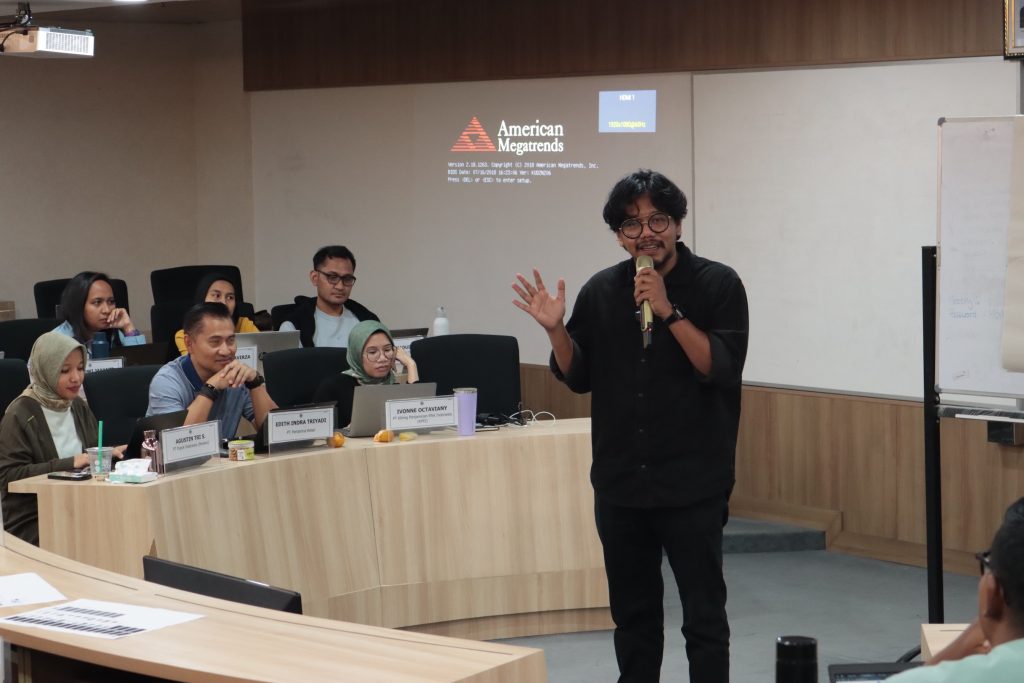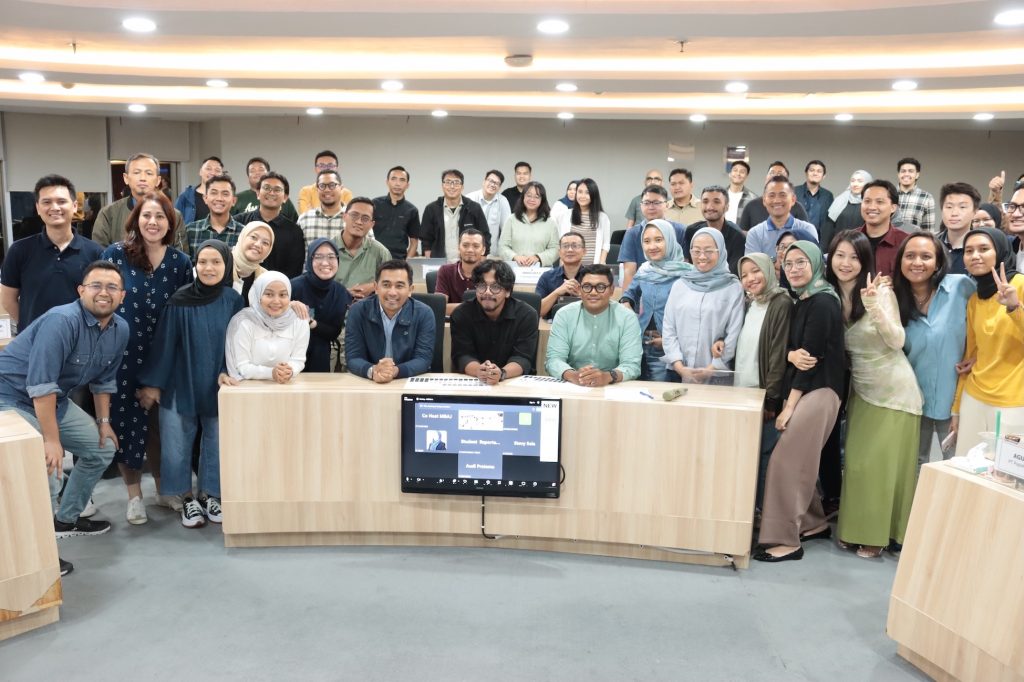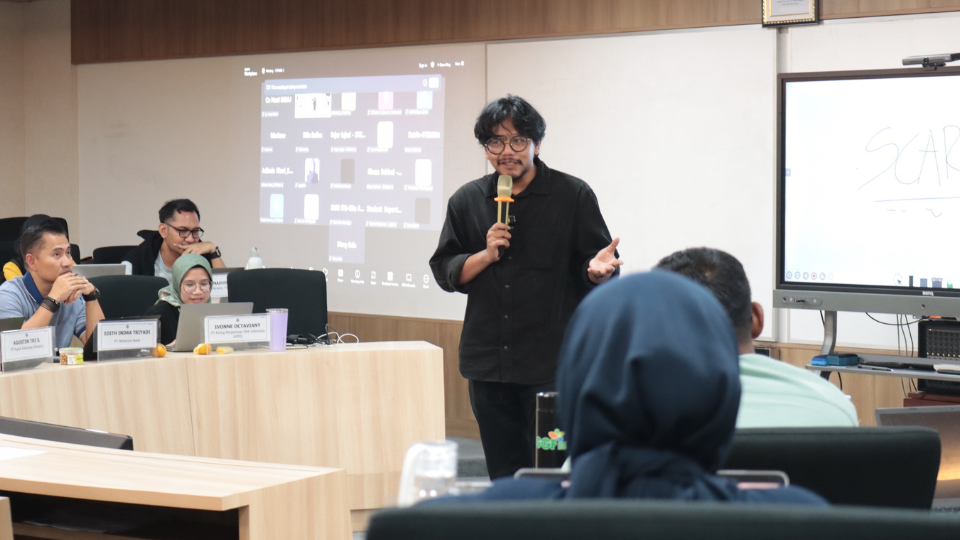Content creator and public figure in the financial sector and current affairs, Ferry Irwandi, served as a guest lecturer at the SBM ITB on Saturday (17/5).
Carrying the theme “Public Policy in Indonesia,” the guest lecture encouraged students to explore the kind of leadership Indonesia will require in the future and how they can play an active role in shaping and participating in the country’s leadership system.
Ferry began by explaining public policy from an economic perspective. In general, he stated that public policy is shaped by human needs and desires, yet constrained by limited resources. Therefore, efficiency and democratic governance are essential for effective policy implementation.
The fundamentals of public policy are closely linked to economics. Policies should be developed based on quantitative, measurable, and rational considerations, while also reflecting values and focusing on their potential impact. According to Ferry, public policy can be understood as a set of rules designed to govern people within a region and address emerging issues.
Public policy must prioritize efficiency, according to Ferry. Policies should be implemented effectively, supported by accurate opportunity cost calculations, and designed to measure their impact clearly.
To develop sound public policy, Ferry emphasized that the first step is identifying the problem. This is followed by conducting a cost-benefit analysis to evaluate how the policy delivers economic and social value to the affected community.
In the final stage, the policy must be analyzed in collaboration with relevant stakeholders, including beneficiaries, interested parties, those responsible for implementation, those potentially disadvantaged, and funding sources. These considerations are essential to avoid placing an excessive burden on the state and to ensure that the policy delivers tangible benefits to the community.
Ferry highlighted the importance of collaboration, particularly between the government and the public, to enhance the quality of policy implementation. He stressed that public policy should be based on quantitative data, be participatory in nature, and have measurable impacts and benefits.









